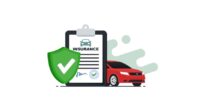This year 2021 is not as savoury as it sounds; twenty-twenty-one sounds ‘even and balanced” until it started rolling out but it’s not over until YOU WIN!
So below are my practical recommendations to you on how to win free stuffs online before the year 2021 ends.
1. Imagine that you are the one giving free stuffs
You have a brand to promote and bring in massive sales for and your free stuffs are solely for achieving those two objectives of massive brand awareness and sales.
Your goal is to use the free stuffs to get your brand in front of as many people as possible, bring them into your sales funnel then target and convert the maximum number of the prospective buyers into your fee-paying customers.
For brands that are still building a social media following, that’s not easy. The number of initial followers who know about the contest might be pretty low, and the number of actual participants even lower thereby narrowing the eventual conversion.
That’s an opportunity for discerning prospective free stuffs winner, because it means that you have a pretty good chance of winning the prize — if you play your cards right.
But in reality, most people don’t do this as their attention is usually taken away from promotions of emerging brands. They get to hear more of the ‘deafening’ promotions of big brands.
So to win before this year ends, you must scout for brands not currently under your radar and find out what they are offering as free stuffs for promotion and when the promotions will start.
You can read up interesting ways of how and where you can discover such free stuffs (how to get free stuffs online)
2. Search through social media, email lists, and hashtags
Now if you don’t have a social media account, it’s important you sign up to do so and if you don’t have Google alerts, you need to henceforth monitor the web for news content linked to your keywords such as free stuffs, coupon etc using the free Google alert.
This works when Google sends you notification with links to contents where those keywords are used.
Your next step is to identify businesses, venues, or government agencies that regulate such promotions then follow all their social media handles.
Preferably, follow those businesses that are in your local area, because there is no point winning free stuff you can’t redeem conveniently when free shipping is not included with the free stuffs.
For email, you just have to sign up with companies whose products you like, and promotion opportunities notification emails will start pouring into your inbox.
You can easily do random but deliberate searches using keywords like “share and win.”
If you’re on twitter, Facebook or Instagram, have a list of local accounts you check in on regularly, especially if you see a record of them posting free stuffs or promotions on a regular basis.
Twitter particularly has lists of businesses or influential accounts that you can follow in columns using apps like Tweetdeck or Hootsuite.
Twitter also has a handy user-friendly geotagging feature that lets you see tweets within a set radius of your location.
Using Tweetdeck or an advanced Twitter search, you can run a radius search to find these local tweets. (For example, you can search near: “New York City” within: 20 miles in Tweetdeck or a Twitter search box).
Keep these in a separate column you can keep checking for updates over the course of the week.
Sometimes, you can deliberately search for promotions in specific areas of interests for you. For example, if you love fishing, you can search for free stuffs promotions related to fishing.
Your feedback on free product samples as someone knowledgeable in that sector can be very valuable in exchange for free stuffs from companies yearning for feedbacks and attention of those with passionate in that particular business sector.
To avoid missing out during periods you are not doing the search, you can set up pings for keywords that will help filter your tweets and emails.
When running a search in Tweetdeck, I generally recommend that you include terms such as “,” “RT to win,” or “RT for free stuff” that are most likely to be included in a social media manager’s promotion message.
You could also specify a target item, whether it’s a newly opened restaurant or hotel, newly published book, travel ticket, or electronic gadget.
You can also run a search for these keywords in the “any of these words” row of the advanced Twitter search.
Some enthusiasts looking for giveaways in some sectors or across board automate using bots ( computer software programs specifically coded for the task of searching for these keywords and where they are mentioned) that automatically retweet or enter anything with a giveaway or free stuffs keyword.
You can actually create your own bot.
Once you have grown a significant pool of free stuffs to choose from, you can then select.
In my own case, I just focus on my favourite authors or giveaways I might actually get, use and keep.
You can still make your own treasure trove of free stuffs from which to select even before the year ends.
3. Create different promotion-specific accounts
Luckily, Google doesn’t document any limits on how many accounts an individual can open.
So doing this is not an infraction although doing this with some certain words may present its own challenge especially where such words are already taken as usernames for accounts opened earlier than your attempt at using them.
To work around that will require some creative use of names and special characters like the symbol underscore, ⟨_⟩, also called underline, under dash, low line, or low dash just before adding other words.
For example, you can have [email protected] created as a separate accounts that you use only for promotions or contests.
You check emails received through these separate accounts once or twice a day — often enough to see new announcements but not so often that it takes you away from other very serious tasks.
For email promotions, you can also add +promotions to your email address ([email protected]) as you type it into a signup form; then you can run a filter on all incoming emails with the appended keyword.
You can also take advantage of filtering technologies, such as Google’s promotions tab or Tweetdeck’s filters, to filter out promotion-related content from your main account.
In some cases, you might also decide to use your primary accounts. This might be annoying for you and your friends, but in some cases it might be worth it, because (as we’ll see) contest promoters are more likely to choose winners with real names, verifiable online PR, an active social media presence and more online followers.
4. Your Online PR counts.
Promotions managers want winners who will promote their brand, preferably people who have active social engagements, and will spread the word to his or her followers after winning.
For social media contests especially, there’s a big benefit to choosing a winner who has a decent and huge personal following.
Often the rules set by the promoters favour those who best represent the brand by meeting some well-considered criteria for the “winning” entry.
This is one reason using your real accounts might give you a better chance of winning than using a secondary or promotion-only account.
And at the end of the day, actually sounding excited about a contest will probably help you get picked, or at the very least make you a much more appealing prospect for a contest down the line.
Remember that you may be disqualified if you use multiple accounts to participate in a single promotion.








